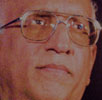

Declaring e-mail bankruptcy
In 2006 six trillion business e-mails were sent. E-mail traffic has nearly doubled in the past two years. And now e-mail is giving many people the feeling that it is too much; their work is never done; they get the feeling of being overloaded.
Like so many other technology innovations, the convenience of e-mail has become too much of a burden for many people. Swamped by an unmanageable number of messages and plagued by a huge amount of annoying spam and viruses, some users are declaring 'e-mail bankruptcy'. They are turning off e-mail entirely and moving back to the telephone as their preferred means of communication.
Perhaps more common, many are simply abandoning an old e-mail address and starting afresh. Of course, this means sending e-mails to those you WANT to e-hear from. And the cycle starts again.
After spending 80 hours trying to clear out his backlogged inbox, Stanford Law School professor and Wired columnist Larry Lessig decided to surrender. "Bankruptcy is now my only option" he wrote in a mass message to his correspondence 'creditors'.
Here is how Lessig erased his debts and started again:
* Collect the e-mail addresses of everyone you have not replied to. Paste them into the BCC field of a new message which you send to yourself.
* Write a polite note explaining your predicament. Apologise profusely and promise to keep up with your e-mail in the future.
* Ask for a resend of anything particularly pressing, and offer to give such messages special attention.
Some people do not want to go through the drastic-seeming measure of declaring total e-mail bankruptcy. Instead, they are trying to discourage the use of e-mail in favour of more personal calls or instant messages.
Employee compensation styles
In the age of knowledge work, outsourcing and global competition, many companies still have employee compensation systems rooted in the past. In today's business environments, pay must be performance based.
Most of today's employee compensation systems were originally developed in the old, factory environment, stemming from how hourly workers were paid and advanced in the labour-orientated hierarchy. Having a job meant a fixed hourly wage (usually including paid-overtime for working beyond normal hours) with annual pay increases based on years of service with the company, the occasional bonus and an expectation of lifetime employment.
The best knowledge-workers cannot just be paid for the hours they work - they may always be 'working'. They should be stimulated by the freedom to innovate and contribute to the business. That is the wave of the future.
This is what is revolutionising human-resource attitudes in this new century. In the era of knowledge-work, employee compensation styles should adapt to achieve maximum benefits for those who generate results.
Guru advice for startup companies
Many new companies are started by unemployed or dissatisfied people. Being an owner in an enterprise is perhaps the biggest satisfaction that any job can provide. If you are considering a startup, or have already launched your own company, here is some guru advice which may help.
I am an engineer, and some 35 years ago when I started Action Instruments, I went to the top engineering gurus - engineers themselves, who were surprisingly accessible. Here is their advice that inspired me:
* John Fluke, Founder of Fluke Manufacturing (now part of Danaher): "Good people make good products, which make a good profit."
* Two engineers, Bill Hewlett and Dave Packard, started the ultimate engineering company, Hewlett-Packard, in the proverbial garage. Bill Hewlett's advice: "Understand the numbers. Engineers forget things like margins and profit. What you measure, you can control."
* Dave Packard said: "People are the keys. Without good people, you have nothing."
* Andy Grove, former Intel chief wrote: "Only the paranoid survive." Read his book and keep it around when you are running your own company.
Here is my own advice: Hire intelligent, passionate people and make them owners to keep them motivated.
Jim Pinto is an industry analyst and commentator, writer, technology futurist and angel investor. His popular e-mail newsletter, JimPinto.com eNews, is widely read (with direct circulation of about 7000 and web-readership of two to three times that number). His areas of interest are technology futures, marketing and business strategies for a fast-changing environment, and industrial automation with a slant towards technology trends.
© Technews Publishing (Pty) Ltd | All Rights Reserved